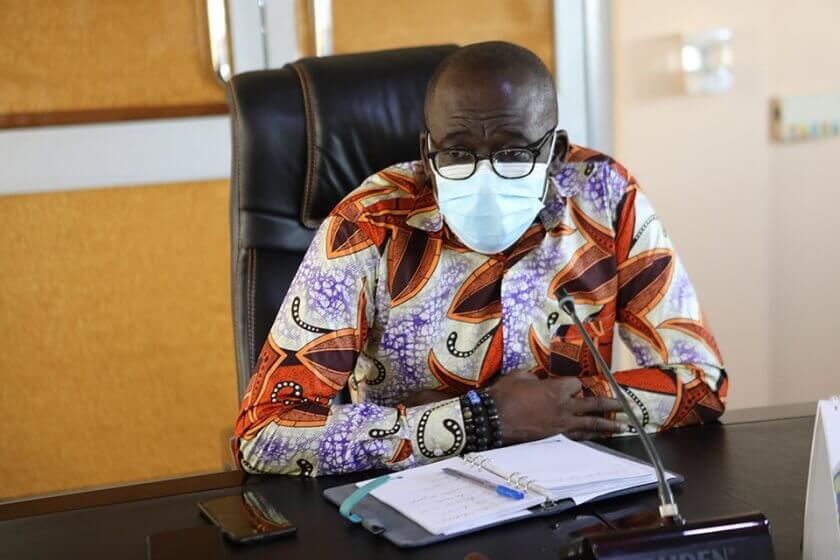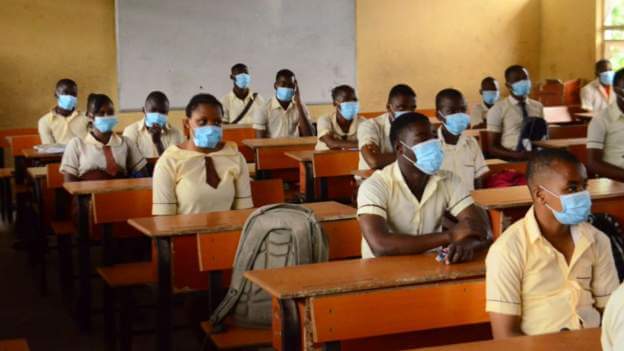Support more students with innovative business ideas

The COVID-19 pandemic has had an impact on several dimensions of life across the whole world. This has presented various challenges to all sectors of the global economy, including education and business.
Pan African University (PAU) students or alumni have not been spared the effects of the pandemic on either education or entrepreneurial lifestyle.
While Africa, like the rest of the world, went through the third COVID-19 wave, a brief online survey was conducted to investigate lessons and experiences specifically in new business, entrepreneurial endeavours and innovations, arising from the need to adapt to any pandemic, in particular COVID-19.
Students and alumni of all four PAU institutes (the Institute for Basic Sciences, Technology and Innovation or PAUSTI, the Institute of Water and Energy Science or PAUWES, the Institute for Governance, Humanities and Social Sciences or PAUGHSS, and the Institute of Life and Earth Sciences (including Health and Agriculture) or PAULESI) were targeted for data collection.
Due to a generally poor response rate, 79.2% of respondents were affiliated with PAUSTI and the remaining 20.8% with PAUGHSS. Of these, 47.92% are entrepreneurs and 33.33% are involved in entrepreneurship. However, all regions in Africa are represented in the group of respondents. The gender ratio of respondents is 72.9% men and 27.1% women.
Positives and negatives
The results showed that 47.92% of respondents feel that COVID-19 negatively affected young entrepreneurs on the continent. Almost half the respondents (43%) agreed that the loss of opportunities is a concern.
On the other hand, COVID-19 still benefits youth entrepreneurs. According to the findings, the advantages include gaining skills, fostering innovative mindsets, and adapting where technology and business are concerned.
Both the challenges and opportunities of COVID-19 seem to have led to changes and adjustments in how we as young people lead our daily lives, work, conduct business and learn, among others.
These adjustments provided opportunities for innovation, in most cases driven by creativity, such as designing automated hand-washing machines.
However, as PAU or the African Union (AU) in general, the youth feel that major investment is needed in an era of entrepreneurship during and after COVID-19.
First, PAU or the AU should consider investing more in its graduates through offering more training and business initiatives targeting aspiring young entrepreneurs to adjust and adapt in their business operations even during times of risk and crises such as COVID-19. This could include promoting African innovations through initiatives such as GoFundMe.
Start-up funding could be increased, and not limited to the PAU Innovation Challenge award finalists. PAU, AU, and other youth developmental partners across the continent should widen up the network of potential funders to support more students with innovative business and entrepreneurial ideas each year.
Invest more in technology
The results showed that young people think one thing COVID-19 has taught us in Africa is that it is high time we invested more in technology to run business models that are adaptive to uncertainties.
We need to go digital in both education and entrepreneurship. As a continent, it is high time we invested in virtual workspaces and internet connectivity, and strengthened online collaborations. One respondent said: “[We should] be more competitive in change management and computer technology skills. Always be vigilant and optimistic.”
However, as things stand in Africa now, this may not be so easy considering that mobile data on the continent is still not affordable, despite an increase in subscribers.
For example, according to a 2020 mobile pricing report, Somalia has the cheapest (US$0.5/Gb) rate with the highest recorded in Saint Helena (US$52.50/Gb), The Kenyan Wall Streetreported on 14 June 2021.
Data pricing concerns were also raised by the respondents in this survey. One respondent said IT capacity building and the stability of internet access in Africa should be improved and more investment is needed in online business technologies.
Another said business transactions should be digitalised: “Africa ought to encourage online trading as well as payments. Youths should focus on the use of digital technology and the opportunity that it can offer to any kind of business.”
Consequently, this article proposes that the AU should partner with other member states such the Economic Community of West African States and the Southern African Development Community to implement measures aimed at making internet access across the continent more accessible.
Further, PAU should consider supporting young entrepreneurs in their pitched innovations, either financially or technologically via webinars that can help them cope with the current situation.
Lastly, the AU should create a pan-continental platform for idea pitching, networking and mentorship, and create a youth hub for youth collaboration in formulating solutions to the challenges they face. A PAU loan scheme should ideally also be introduced.
Elias Mwakilama is a PhD student in computational mathematics at the PAU Institute for Basic Sciences, Technology and Innovation (PAUSTI) at Jomo Kenyatta University of Agriculture and Technology, Nairobi, Kenya. He is expected to complete his studies in June 2022.
Source:www.universityworldnews.com
Christopher Sam is a savvy web designer and developer with advanced knowledge in Search Engine Optimization. The certified Google Trainer is also a trusty contributor to this website.





